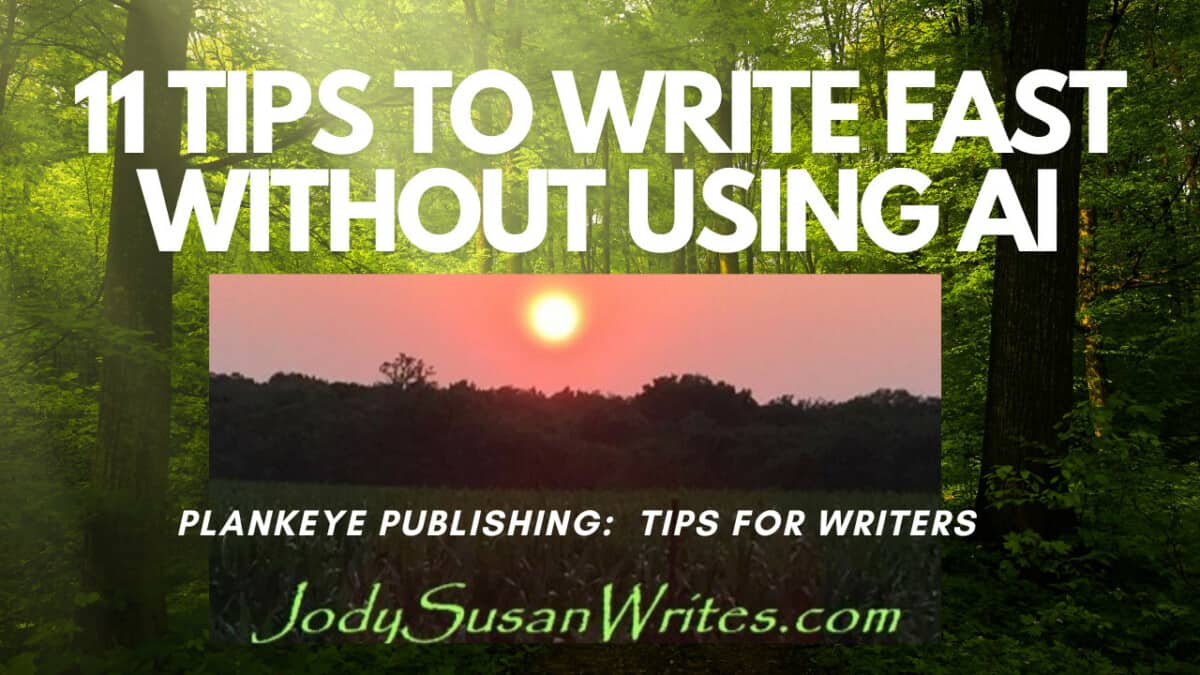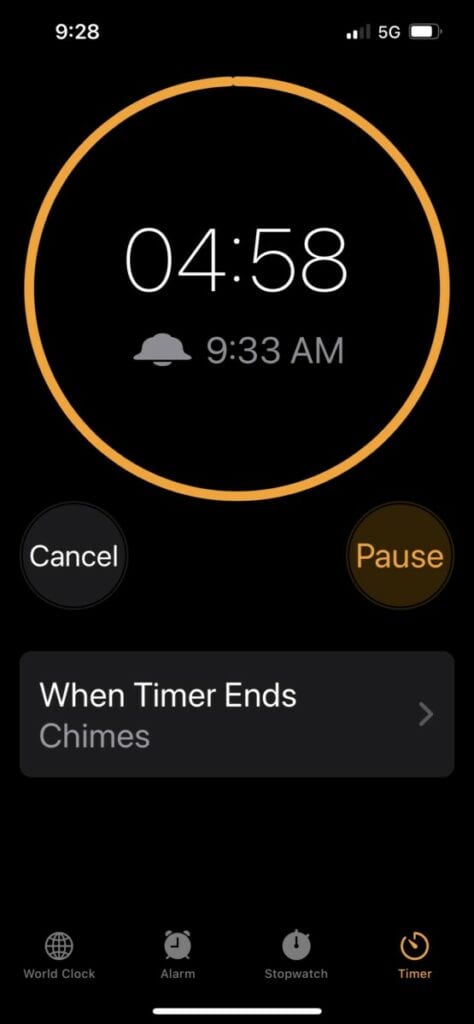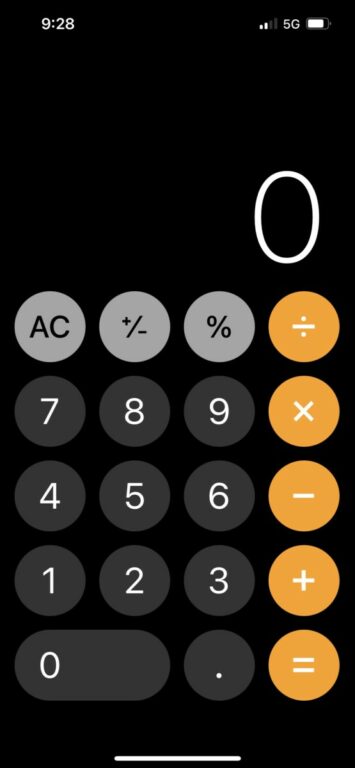This post may contain affiliate links.
Despite the advent of Artificial Intelligence, there are many people who love to write and don’t want that skill taken away by the likes of Chat GPT. For many of us, turning to AI as a writing assistant feels unethical, like we’re cheating by not doing the work ourselves.

If you happen to be one of those people, the temptation to save time with Chat GPT may still feel rather alluring. I’d like to offer the following tips to save you time, and help you keep on track with writing your own words.
Set a Time Limit for Each Subsection of Your Writing
In elementary school I’d get so frustrated with “times tests” in math. I thought they were stupid, because if I had all the time in the world, I could use my fingers to count out the answers. I hated the pressure of the buzzer going off – and all the blank spots where I hadn’t gotten a chance to finish the problems.
I didn’t see that the need for speed was revealing what I didn’t really know.
As writers, we should write what we know – this will help us with speed.

Writers need to respect their readers’ time.
We tend to ramble when we are unsure of our subjects, or trying to go in too many different directions. If we don’t know enough about a topic to talk about it efficiently, off the top of our head, perhaps we should save that subject for somebody else.
To write this post, I made a list of subtopics, and have set a timer for five minutes to cover each section. If I can’t think of a few paragraphs in that time frame, I probably should eliminate that tip from my list.
*Editor’s note: I did go back and spend some extra time here and there; but the five minute rule helped me keep from floating totally off topic.
Minimize Distractions to Help Yourself Write More Quickly
I’ll just give a case study in this section of what not to do. See if any of my feelings sound familiar:
With seventeen seconds to finish my advice on setting a timer, my dad started telling me his plan for the day. I’m here helping him downsize and move. He’s looking for a chair to give to my sister that I haven’t seen in a decade. There used to be two caned kitchen chairs; but he can only find one. I’m pretty sure the other fell apart.
Now I’m hearing: There were four sturdy chairs, and he can only find three – have I seen the other?
I couldn’t remember – then I did. It’s s up at the dressing table in the room I was staying in – the spot where I was going to write, which has since gotten crowded with all the coming and going to and from my parent’s house.
I am wishing I’d started writing sooner this morning.
I’m remembering how nice it was when I could head to “my office” at Regus up the road, and use rented space for a day.
I’m thinking I should have gone to Panera to use my “Sip Club” Membership – then I could have had free coffee and nothing around me reminding me of how many other things there are to do.
I should have invested in a kitchen timer, because for some reason the one on my phone isn’t dinging, and I don’t want to waste time fiddling with it or be tempted to respond to calls and texts.
You get the idea. We can’t prevent every distraction; but we can minimize them by setting a time and place for writing, and reducing the risk of technology being within reach, and everybody reaching us.
Reduce Words When Writing to Keep on Topic and Finish Fast
“Let your words be few”, is something I’m working on.
I tend to over explain things. I add flowery phrases that don’t need to be there.
I go into far too many anecdotes and mix my metaphors – it’s like I’m serving dinner on mis-matched plates purchased at ten different garage sales.
Slowly but surely, I’m learning to look at a sentence and start slashing. Saying that makes me cringe, because I love words, and how they sound when strung together; but I know what it’s like to be a listener or reader, and just want the narrator to pick up their pace and get to the point. It’s rare that I ever crave more details.
And if I do, that’s just an opportunity for the author to put it in a second book or article and sell me a series. I’d rather finish reading something and hunger for more, than feel like I’ve been over-satiated by too much information.
Stick to your point – subheadings really help with this.
To Write Quickly, Decide Which Topics are the Highest Priorities
My biggest problem is that I have too many ideas. I bottle them up until I’m about to bust, then tend to write one big, long blog post that leaves me so exhausted, and not wanting to write again for a long time.
My readers get drenched with too much information.
Creativity can be crippling, especially when coupled with limited time.
Making a list of writing ideas and grouping them together in manageable amounts can help reduce the stress of feeling like everything has to be written all at once.
Decide what is most important to you, and make that a priority.
Don’t accept “You have to do this to be a writer” as a reason to do anything
To be a writer, the one thing you have to do is write.
With AI, maybe that’s even become questionable; but I’d say to write well, the actual act of writing is still the most important priority; but these days, to “be a writer” means more than making books – it’s supposedly also required to master social media, compile email lists for drip campaigns, make a mark with branding, figure out Google Analytics, and blah, blah, blah… it’s a wonder our brains don’t explode.
In a world where everyone and their mother seems to have written a How-To book and slapped it up on Amazon (including me), it can be hard to find our own paths. Each of us has our own gifts, interests, and specialties.
I started this website after realizing that if I spent all my time writing; but if it never left my hard drive, or just got lost in the sea of manuscripts on Amazon, it would do little good.

I decided I needed a landing page, and in the process of figuring out how to do that, wound up signing up for something called Project 24.
I didn’t really know what I was getting into at the time. I don’t know if I would have gone the same direction, if I had; but I’m glad I did. Project 24 has taught me how to build a website – and I know if I would more fully use their resources, this page could be improved exponentially.
The thing is, I didn’t start out to be a blogger, or grow my readership through social media, or focus on affiliate marketing. Sometimes I have to step back and remind myself of that. I get overwhelmed with all the course work that is offered.
I feel like I have to do it all, or I’m wasting my resources; but that’s a little like going to a buffet, and feeling like any and all food offered has to be consumed in copious quantities to get my money’s worth. I’m learning to pace myself. I don’t want to gorge myself on things I don’t really like, just for the sake of getting my money’s worth.
At a buffet, there are some things that I skip completely, knowing from experience I won’t like them. Even the stuff that looks good, I tend to just take a little sample of, so that I can decide specifically how much I like it. I also pace myself, remembering I can go back for seconds, thirds, or maybe even fourths – but the goal is to enjoy the meal, not make myself miserable.
The same can be said for the world of writing and all that comes with it. We will each specialize in something different. Not everyone is going to enjoy the same thing – there’s no need to be militant in our portions – especially in the overwhelming task of self-publishing or saying “pretty please” to agents.
Pick and Choose. Write what you want to, instead of what you “have to” – that will take a lot off of your To-Do List. Don’t feel like you have to become a webmaster, social media influencer, editing-extraordinaire, with a knack for graphic design all in one week. That kind of pressure can tempt anybody toward graphic language.
I’m trying to keep it G-rated around here, so I’d rather delegate some of the extra-curricular tasks, so that I can focus more on writing.
Limit Social Media to Save Time and Energy for Efficient Writing
Social Media is the reason I put off writing publicly in the first place. I can write fifteen pages of a novel with less stress than I can respond to two comments from Facebook. I feel myself get all flustered, wondering how to say something equal to each person, whether an inside joke is appropriate, what I will do if they say something back, etc…
I don’t enjoy the formatting, and I don’t like phrases like “She’s not my friend”, or “I follow her” – which feel rather seventh grade-ish to me – and if you know me well, you know I never want to have to go back to middle school.
I hate the feeling of wondering if I should “follow” someone I don’t recognize, just because they are following me. It feels too vulnerable.
And I hate that there is a never ending list of apps, that I feel I ought to be signing up for.
For now, I have decided to save my user name in some social media forums, just in case I ever want to use that arena to share my writing; but I really don’t want that to be my writing focus. It brings back all aspects of my insecurities, and besides, I feel myself sucked into the distraction.
If I stay away from social media, I have much more time to write my words.
Be an Efficient, Well-Rested Writer by Monitoring Screen Time
I write much more efficiently when I have no internet access, and I sleep better with my phone in another room. When working on a writing project, it is so easy to procrastinate for the sake of “research” (or recreation) by turning on my phone, or clicking onto multiple tabs on my laptop.
Last night I couldn’t fall asleep.
My phone was too close to my reach, and it made it a ready question answerer – I’m sometimes like a kid that just has one last thing to ask before going to bed. The internet doesn’t do a very satisfying job as a babysitter getting me tucked back in and settled down.
The World Wide Web can get me wide awake, thinking late, which destroys my morning routine.
When our globe rolls around on it’s axis for the start of yet another day, I don’t want to be tempted to just turn over and hide under the covers, so I try to keep my screentime to set hours – but I have to admit, in this one I still need some work.
To Write Fast, I Try to Write in the Morning – Before Breakfast
I’m often tempted not to write. I can so easily talk myself out of sitting down at my laptop, especially once I get swept along in the day’s circumstances and various forms of stress; but if I do, in the back of my mind, there will be a pulling feeling of being disappointed in myself throughout the day. I will wish I’d taken time to type.
If I want to be a writer, I have to write.
My days go much better, if I will focus early on my first priorities, like writing, and let the lesser tasks fall into cracks and crevices along the way.
I remember in high school a lady sharing tips on time management. She had a jar, some rocks, pebbles, sand, and water. She showed us that these elements would only all fit in the jar, if placed there in a certain order. If the little pieces of sand went before the big rocks, they wouldn’t all fit. The biggest elements had to be put in the jar first, then the rest filled in the gaps.
Rocks, pebbles, sand, then water. Even when the jar looked full, there was room for the small stuff.
Our days ought to be ordered by our priorities; because we easily run out of time.
Budget the day.
The grocery bill has got to come before a new corvette. It would be stupid to drive around looking fancy in a sports car while going hungry – sorry if this hurts the feelings of any super-models cruising around on too stringent of a diet; but it’s true.
I was so tempted today to get sucked into the tasks surrounding me.
I try to talk myself out of writing almost every day. I’m like that friend who’s often a bad influence on my own goals; but if I just get up and write, the rest of my day seems to go so much better.
Turn off Your Ringer to Write Efficiently with Less Distraction
Turning off my ringer is my number one writing hack for efficiency.
I tell anybody who might need me in an emergency, “If you really need to get ahold of me, call three times in a row – that will break my phone’s silence,” otherwise, I keep the world on mute.
There is something about that little ding that sends my brain off course and keeps me from completing paragraphs.
The faster you get done with your writing, the more time you can spend on your phone once all the work is finished – if that’s what you want to do.
Clear Clutter from Your Computer Screen to Focus on Writing Fast
When I am working on the internet, I try not to let myself have too many tabs open – it slows my computer down, and my brain too.
When I’m done for the day, I try to shut all my tabs, and let my computer truly “Shut Down”, so I can restart fresh the next day. Otherwise, I don’t actually finish tasks, and spend a bunch of time trying to figure out where I left off the day before.
Modern conveniences may make us feel like we can do multiple projects at once; but to do them well, it’s still a good policy to just tackle one writing task at a time. Too many tabs can be like trying to read a set of Encyclopedias with every finger holding a place in a separate volume – it’s just not efficient.
Set Up a Space, So You Can Write Quickly and Efficiently
Having a set space, with all necessary supplies gathered there, can save you time and exasperation when it comes to sitting down to write.

I recommend not having a bunch of knick-knacks on top of your workspace, because even if they’re beautiful to you, they tend to be magnets for more and more clutter.
Claim some territory, and keep it cleared off for when you are ready to write.
In school, my Home Ec teacher, Mrs. Manley (who we called Mrs. Womanly when she wasn’t listening, because it seemed more appropriate), also taught study skills. I remember her telling us to gather all of our school supplies into one area and keep them there, so we didn’t waste time running around the house in search of a pencil.
I keep a writing bag with my computer, charging cords, a set of glasses, pens, and posting planner. That way, when it’s time for me to write, all I have to do is grab that bag and sit down at my desk – even if I’ve been to a coffee shop for my last writing session.
By Writing Efficient, Focused Content, We Won’t Need to Rely on AI
These eleven tips for writing quickly may seem like rather elementary concepts; but I would guess we all have trouble mastering them.
The struggle reminds me of being in school, continuing to count out math problems on my hands, because I didn’t was lazy about learning my times tables.

Mastering my flashcards would have made me a much more efficient mathematician; but I didn’t want to take the time to build those skills – and besides, why learn math, when I could figure out my problems on a calculator?
In hindsight, I can see the benefit of hiding math skills in my head, instead of having to keep a calculator in my pocket, or even on my cellphone. I believe being able to write and express thought is a skill that can’t be replaced by artificial intelligence without causing us to atrophy as human beings. We wind up going through a lot of unexpected inconveniences when modern methods malfunction.
So, I’m wondering, will Chat GPT be to writing what calculators are to math?
Will we keep writing, or begin to rely on artificial intelligence more and more, because we think it’s easier to do so?
What will become of our brains?
Thanks for reading what I’m writing,
Jody Susan
Recent Posts
This day marks the stopping point for me trying to "get my stuff in order" for a while. I've been building a foundation for having my ducks in a row so I can launch into a visionary season,...
Thursday night I went to listen to Anne Lamott. I wasn’t sure about going. Some of her writing I like; but some makes me squirm. I think I like how she’s real; but worry she’d reject...
